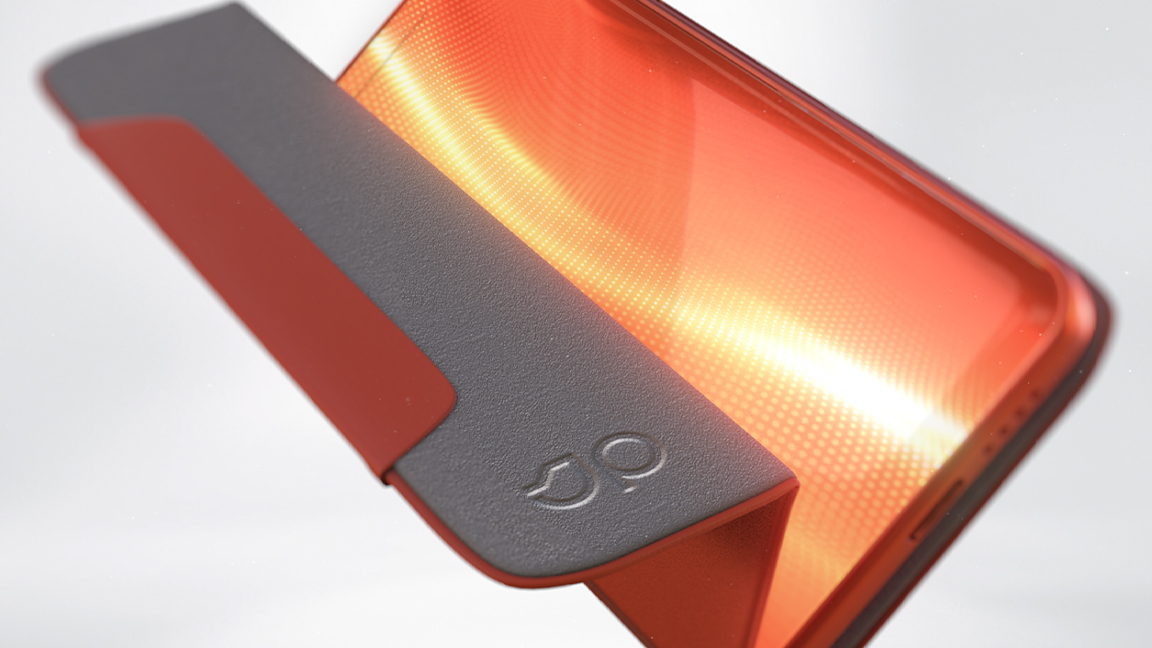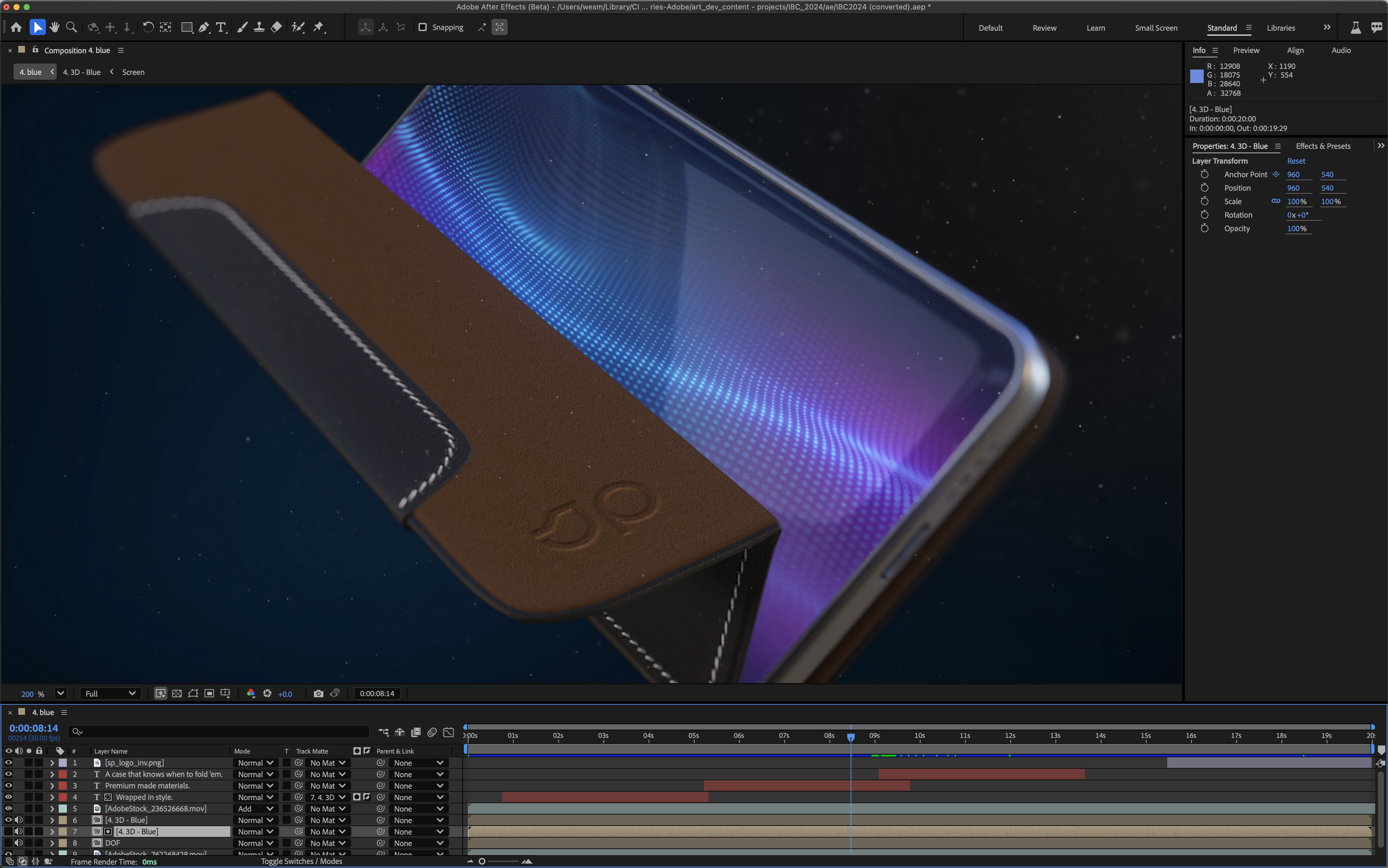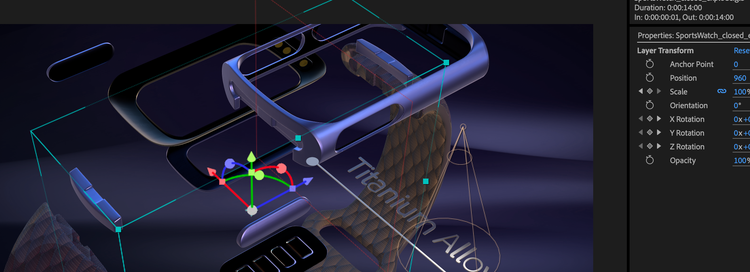
Adobe has announced a batch of significant After Effects updates, including more tools for working with 3D objects. This brings deep and speedy connectivity to Adobe Substance 3D.
The new tools and features for After Effects include support for embedded 3D animations, 3D shadow catchers to allow 3D elements to cast shadows over live action footage and new depth-mapping controls.
There are also 33 new animation presets along with similar UI updates to those introduced in Premiere Pro, and Adobe's also added UI hardware acceleration for Windows. The new UI refresh includes two dark modes, a light mode and a high-contrast mode. There are also tweaks to the fonts and typography to improve legibility.

The new features and connectivity to Substance 3D are designed to enable motion graphic artists to easily blend 3D objects into real world footage and 2D scenes.
I was demoed the new workflow by Adobe's Wes McDemott and Victoria Nece who teamed-up to share how easy it now is to move between After Effects and Substance 3D. Victoria opened a pre-animated, pre-made 3D model imported from Substance 3D and dropped into a scene, quickly adjusted the shadows of the object to match the scene using shadow catchers; these enable 3D objects to realistically interact with a scene and create accurate virtual shadows. Victoria tweaked the depth maps of the object to give it a realistic presence.
Victoria reveals the tool is very powerful and not limited to flat, smooth scenes. "You can create shadows on rocky textures as well, it doesn't have to just be a flat thing," she says before adding: "One thing I've been really enjoying doing is using Firefly to generate light sources and make really wild, non photorealistic things. You can really push this. You can either go more realistic with this, where it's really subtle and it really blends in, or you can do something that really pushes stylistically what's possible. You can have a lot of fun with this."

Wes then shows me how easy it is to switch into Substance 3D (and between Substance 3D, Cinema 4D and After Effects) and texture a pre-made and animated model, complete with skeletal rigs for keyframing in After Effects.
Substance 3D Sampler enables artists to create materials with normal maps and generate image-based lights (IBL) from photographs, ideal for matching to environments and locations in After Effects. The model Wes uses is one of 20,000 copy-righted 3D assets designed to give motion graphic artists a speed boost to get started in 3D animation.
"It's a really awesome workflow, and the speed of which you can do things and update things really quickly has been pretty great. So all jokes aside it's super fast," says Wes.
I saw this for myself, Wes could work between both After Effects and Substance 3D in seconds. Textures are dragged and dropped for speed and accessibility - he laughs, "we can all drag and drop" - and the new Send to After Effects function enables Victoria to take Wes' model and simply drop it into an After Effects scene with one click, before precision placing the asset and lighting.
"it's about frames per second, not seconds per frame," says Victoria, focusing on the speed of the new workflow. "It genuinely is a really important piece of the creative process. I have that instant feedback, because if you're waiting every single time that breaks your creative flow."
After seeing the workflow in action, I have no doubt the new addition of Substance 3D to After Effects to create 3D content and animations will speed up the pipeline for many motion graphics artists. You can learn more at Adobe's Substance 3D and After Effects website and access the beta via Adobe's dedicated page.







